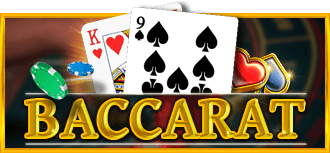
Do Not Fold on Fun in Poker Games
When you fold your poker hand, you cease putting any chips into the pot. This is a good suggestion for arms which have low odds of winning.
To fold, merely toss your cards into the “muck,” a pile of playing cards which are now not in play for that particular hand. This is completed to avoid exposing your playing cards to the other gamers.
Know When to Fold
Folding is doubtless considered one of the most necessary expertise to be taught in poker. When carried out appropriately, folding can restrict your losses and allow you to avoid taking part in unprofitable hands. However, you must by no means have what is known as “fold regret,” the place you regret folding and wish you had performed your hand.
Players often fold an extreme amount of, particularly when facing powerful opponents. However, the key to bettering is learning the method to establish the proper spots to fold. Almost all palms have equity towards an opponent’s betting range, so it's important not to give up fairness too soon. This is why it’s important to know your opponent’s range and betting patterns, and not simply their particular person tendencies. You should also think about the flop and the turn before making your decision.
Know How to Fold
Folding in poker is a crucial skill that will help you save money and improve your winnings. However, it's also important to know when to fold and not to fold too typically.
For instance, if you have a weak starting hand and your opponent raises the guess pre-flop, it's usually a good suggestion to fold. This will scale back your financial losses and make the sport more enjoyable for you.
However, there are some players who refuse to fold and find yourself crashing and burning when the other gamers at the desk regulate to their fashion of play. These are known as maniacs and they can be quite fun to look at, but they will by no means win in the lengthy term. Ideally, you want to try to steadiness out your taking part in types and learn to fold when it's profitable.
Know When to Sit Out
There are sure situations by which it is higher to sit out of a hand than to play. For example, when you've a weak hand and an opponent makes a big opening guess. If you call, your opponent will know that you have got a weak hand and might raise you extra in subsequent rounds.
Another cause to sit out is when you have lots of commitments exterior the game. These responsibilities can distract you and trigger you to make poor decisions, which is in a position to affect your results in the lengthy term.
However, you can not sit out in tournaments as quickly as they've started. You must pay your blinds and antes till you resolve to return or another person takes your seat. Therefore, it is important to plan your breaks nicely.
Know When to Call
There are instances when folding a good poker hand will feel mistaken. It may be pre-flop when you've a mediocre starting hand or it might be at showdown earlier than you’ve seen your opponent’s cards. But remember, you cannot lose cash that you don’t put into the pot.
Another time when folding is a good idea is when you've an opponent that you’ve developed a learn on and you understand they’re bluffing or raising typically or both. You must be calling more typically in opposition to players which are under-bluffing than gamers which are overbluffing.
Folding is a crucial part of any player’s technique, and it should never be seen as unfavorable. It is merely a device to be used for max profit and to escape from unprofitable situations.
Know When to Bet
While it's tempting to throw cash at a robust hand, you probably can find yourself shedding cash by doing so. You can wager your means out of a bad hand by betting against your opponents, forcing them to fold their hands or name you.
For example, let’s say you're enjoying a cash sport and hold A10 on a flop that provides you both a set and open-ended straight attracts. Your opponent has a mountain of chips and strikes all-in, so that you resolve to call and hope for one of the best.
But you should know that your opponent could even have a set or an overpair. This is why it is important to understand your opponent’s tendencies and the chances of your hand successful. You can do this by analyzing the desk and seeing what other players have in their hands.
